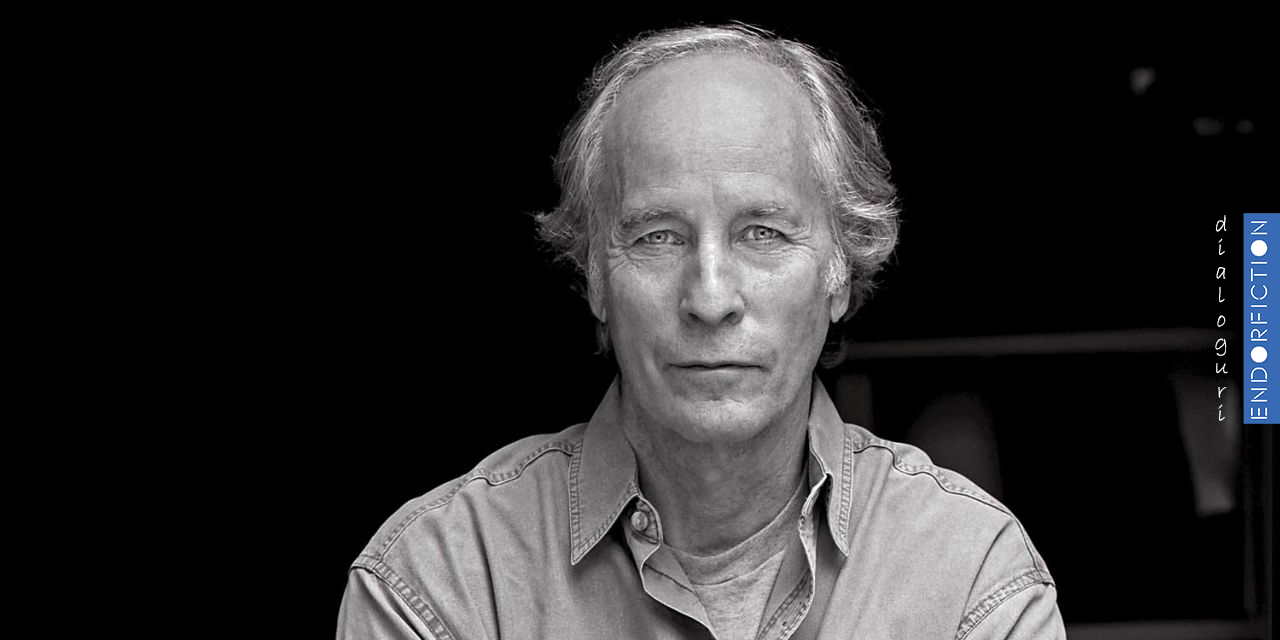Richard Ford - „writing fiction is mosaical; it involved putting together material in ways not previously imagined”
Richard Ford - „writing fiction is mosaical; it involved putting together material in ways not previously imagined”
marți, 26 iun. `18

What came first when creating the stories in Women with Men? A character, a dialogue, a scene, a theme, an idea, a city, maybe? What was it for each of the three stories?
Absolutely first, came the generic decision: to write long stories, or novellas. And then I was interested in seemingly ordinary and even innocent human behavior which unpredictably becomes dire. I was also interested in not the ways Montana and Paris are alike; they are not alike, or not very much. But I was engaged by how -- again -- places we associate with one set of human events can give rise to radically unexpected (and dire) ones.
The protagonists in Women with Men are not the classical "unreliable narrators", but somehow the "unreliable-to-themselves" narrators. They seem to be the perfect illustration of the saying: "Don't believe everything you think". Their intentions are good, they try to act fearless, to change their lives, to follow their dreams - which turn out to be mere illusions or projections. There seems to be a moral sense at work in the stories, they seem to be "punished" for rushing into things, for not knowing themselves thoroughly. They fail, at least for the time being - and they fail themselves.
Is it their moral sense that doesn't let them "live freely" - the fact that they're neither outside, nor inside the moral compass? What is morality for you, in fiction and in life?
That's very perceptive - about these characters. Morality, for me -- within a story -- has any number of over-laying layers or dimensions. There's at least what the characters depend upon to be good -- and how circumstance or the human behavior causes that sense of goodness to be viewed differently, if not outright defeated. There's the community's on-going sense of what's good. And ultimately there's how the story advocates for good, or at least makes us see it newly.
©Diana Zaharia
Are there any grown-up men, in literature or in life?
I don't know what you mean by 'grown-up men'? Do you estimate -- at your great age -- that the men in these stories are immature? Or under-developed? If so, you have some disappointments ahead of you. One of these disappointments is going to be men. And the other is going to be women. We don't stop making mistakes. Ever.
What is the best thing, the most significant thing that a reader ever told you about your work?
I don't remember. And neither would I be inclined to rank the remarks people make to me. Mostly people who take the time to speak to me about what I've written are very positive, even flattering. Under the circumstances of being addressed in this positive way, I find I can't wait to change the subject. So this may cause me to pay attention less strictly. It's not that I care. I do care if people find uses for my stories. I just don't know quite what to do with the information when it's supplied. I'm usually just polite.
Many writers may find themselves in the situation of having the material they know they want to write about, but not knowing how. How can they progress from this point? Did it happen to you?
About all you can do is to test the material by spending a great deal of time with it -- without actually writing. Write down things you think; make up scenarios; file away seemingly relevant lines. My view is that writing fiction is mosaical; it involved putting together material in ways not previously imagined. You just have to keep trying this and trying that. But, again....without thinking that you're writing. You're just planning to write.
What is family, for you? In Romania, the topic is hot on the agenda, with a coalition for the traditional family affirming that there is only one way to do things (heterosexual couple with or without children, excluding LGBTQ, single mums / dads etc.).
Families are invented sodalities; they come in all genders, numbers, traditions. These phony so-called 'defenders of the family' should stay out of others' business and look to their own. Their sense of family is no more sanctified than any other.
„Dialogurile Endorfiction” este o serie de interviuri scurte cu scriitori publicați în colecția editurii Vellant, autori ai romanelor și povestirilor ce stârnesc endorfinele.